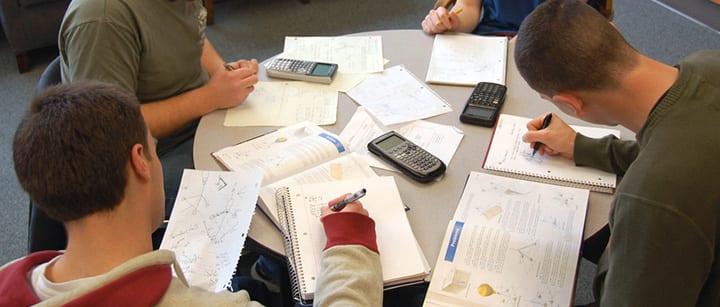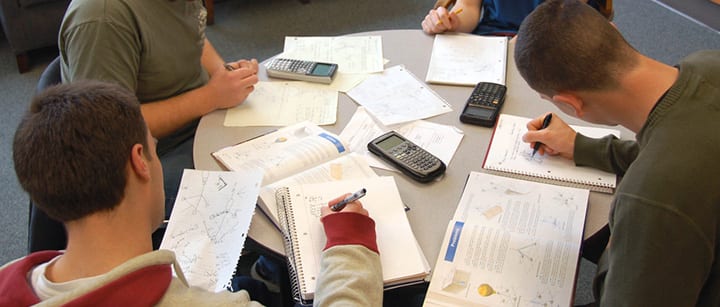Didn’t study for a big upcoming test? Not all hope is lost. Take a deep breath, and try these test taking strategies from Denver, Co tutor Clarence M...
We’ve all been there before: It’s the day of the test, or the night before, and you realize there is no way you will be able to get through all your studying. But that doesn’t mean you can’t get a decent score on the test — you just have to play your cards right.
Stop Studying
My first suggestion is to stop studying! With an overwhelming workload and dwindling time you will most likely make yourself increasingly frantic and undermine any confidence you still have. Instead, make sure you are reasonably well-nourished and well-rested. Then perhaps briefly look over some sort of review or outline of the material to tie what you’ve studied together. Finally, if you have time, try to exercise for a few minutes, as the endorphins will make you more relaxed and confident. And make sure to get there early!
Multiple Choice Questions
To begin, go through the whole test quickly, answering all the questions you know off the bat and marking the ones you don’t know. Quickly getting some problems completed will help build your confidence and settle your nerves. It will also ensure you get all the easy points available and help to alleviate time pressure later on.
Always do the multiple choice questions first. They are easier, trust me. They provide cues that help to trigger memories otherwise stymied by the glaring white spaces beneath short answer questions. I’ve found that incorrect multiple choice options can often be used to answer other questions later on in the test. This is especially true of questions where you know generally know what the answer should be but are blanking on the actual term.
Once you’ve gone through the entire test, come back to the multiple choice and try to answer the questions you’ve left blank. With a basic grasp of the subject, you should be able to whittle most multiple choice questions down to two or three plausible answers. That means you should get about half those questions right if you are purely guessing between the two best answers. But you aren’t just guessing, which means you’ll probably get more than half those toss-ups right!
Short Answers
Now that you’re done with the multiple choice you can move to the short answer section. If there any numerical questions, make sure to scrupulously “show your work,” as teachers tend to give a lot of partial credit if you do. If you are unsure of the proper way to show your work numerically, you can always throw in some written explanations. It’s a bit dorky, and definitely humbling, but it can earn you a few points.
Likewise, try to over-explain your written answers. Sometimes in vaguely circling around an explanation a few times you’ll hit upon the right answer (or what the teacher is looking for). If you choose this approach be careful not to invent things or add unrelated information, since this will make your answer seem like an uniformed guess and could invalidate it.
Essays
Finally we get to the essays (hopefully there aren’t any!). I struggled with writing timed essays for the first two years of college. It’s hard. My advice is to read the prompts at the start of the test to get a head start on thinking about them. Then, before beginning to write, jot down a quick outline of your major arguments. When writing, stay on track. You are going to do better if you hit all the points in your outline and conclude it well than if you leave it half-finished (which is what I used to do). Also, if you don’t have a lot to say, a concise conclusion is a lot easier to write than some long-winded explanation of a shaky argument.
If you follow these tips you should be able to salvage a decent grade. But please don’t continue to rely on this strategy. Rather than trying to cram before a test, do your best to stay up on your work and reading. Also, try to consistently work with a tutor instead of turning to one once you start to struggle and fall behind. Regular lessons will help solidify your grasp of the subject as you go. Between better study habits and these test taking strategies you should be able to get an even better grade on the next test!
 Clarence M. teaches analytical chemistry, biology, creative writing, science, Spanish, and more in Denver, CO. He has a Bachelor of Science focused on environmental microbiology and ecology, and has also studied history and writing at the collegiate level. Learn more about Clarence here!
Clarence M. teaches analytical chemistry, biology, creative writing, science, Spanish, and more in Denver, CO. He has a Bachelor of Science focused on environmental microbiology and ecology, and has also studied history and writing at the collegiate level. Learn more about Clarence here!
 Photo by Tulane Public Relations
Photo by Tulane Public Relations
Suzy S.

